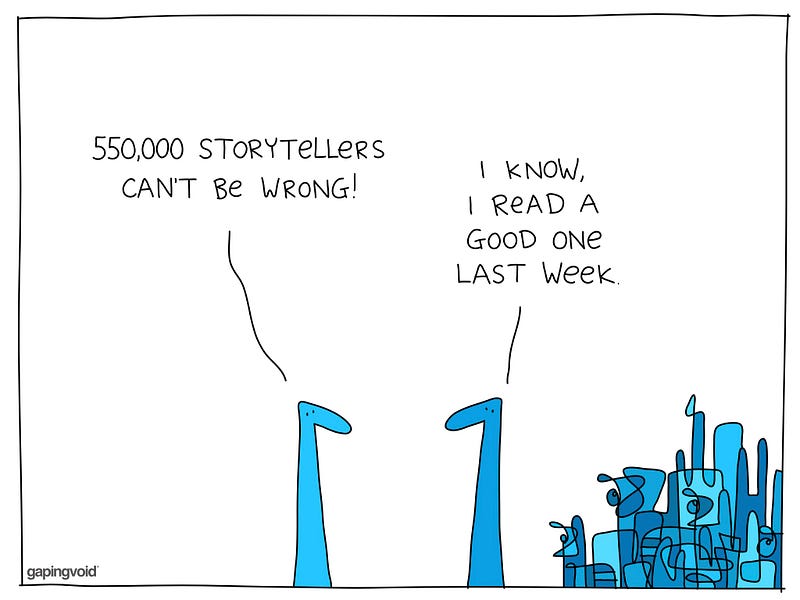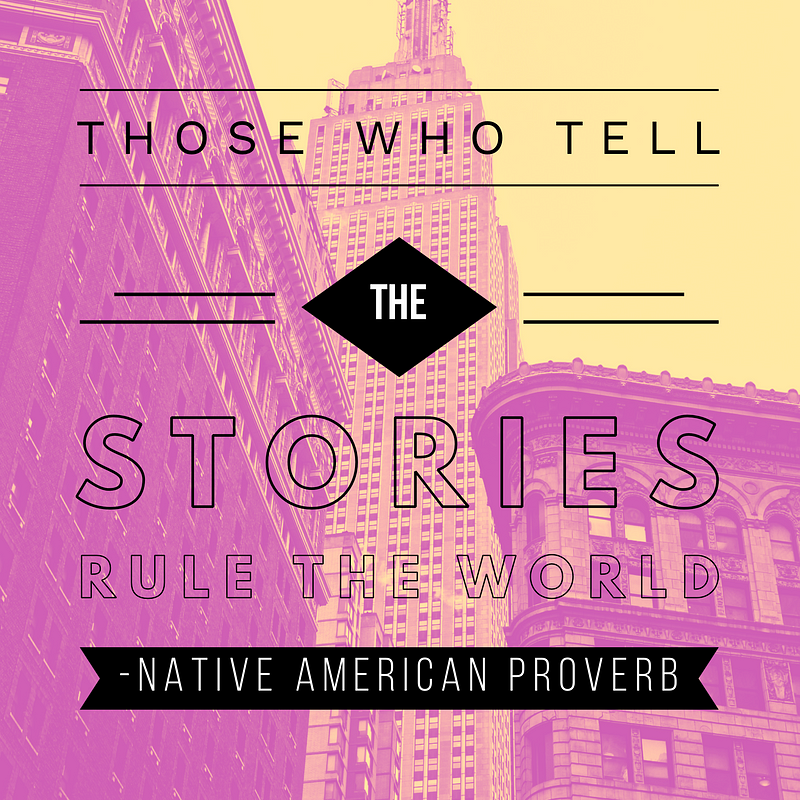
Yeah, me too, I pretend to be one also.
Allegedly 550k marketers on LinkedIn list ‘storytelling’ in their profiles. And yet creating content, case studies, adverts on Facebook, LinkedIn, Instagram and Pinterest does not qualify you or me as a ‘storyteller’.
I’ve worked with advertising/marketing agencies and they still ask me to create animations that are explainer videos instead of stories. Bizarre and they’re supposed to be the ones that are good at storytelling.
It’s not just about the story either, it’s about how you dress it up. I am a follower of minimalism and one of The Minimalists, Joshua Fields-Millburn did a webinar on writing a few months ago (June 2018) and he explained it the best way I have ever heard it.
The first sentence you write is to make the reader want to read the second sentence, the second sentence you write is to make the reader want to read the third sentence, the third sentence you write is to make the reader want to read the fourth sentence…
You get the idea, every sentence has to be your best sentence in order to keep someone hooked. So when you’re writing a story script it would be a great suggestion to keep that in mind.
Put some characters into the story, real names, real personalities with a life and a mission. Make it relatable to the viewer, know your audience, you have to know your audience, better than they know themselves. If you don’t yet know enough about them then go and find out, lots of them are very happy to talk about themselves.
Happy storytelling!
